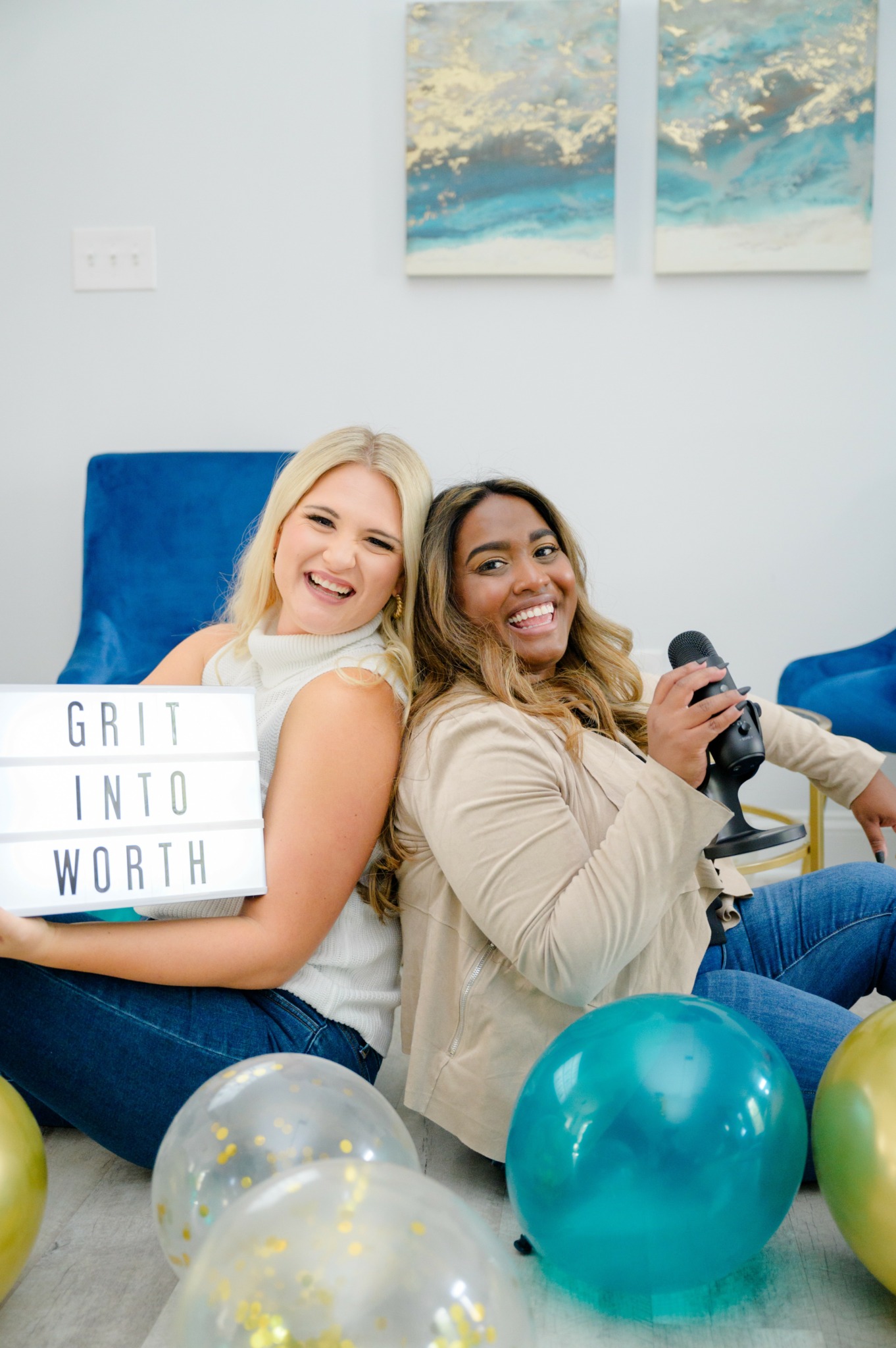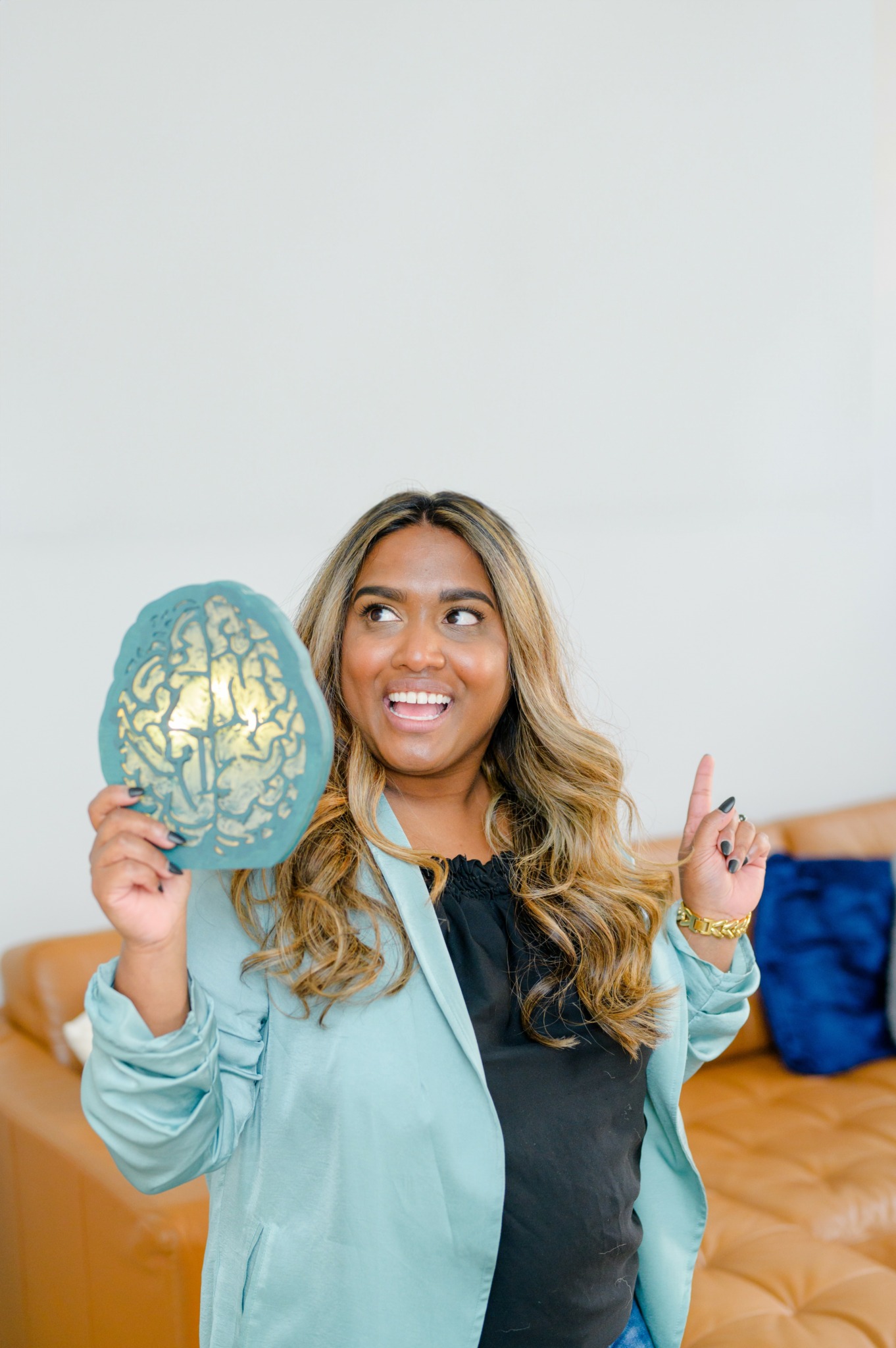We’re excited to introduce you to the always interesting and insightful Kira Denney. We hope you’ll enjoy our conversation with Kira below.
Kira, appreciate you joining us today. How did you get your first job in the field that you practice in today?
I was a graduate student in West Palm, juggling coursework, internships, and the ever-present anxiety about what life after graduation would look like. Like so many students in my field, I needed a job that not only fit around my academic schedule but also gave me a foothold in the mental health world. That’s when I stumbled upon an administrative position at a Partial Hospitalization and Intensive Outpatient Program (PHP/IOP) for eating disorders.
At the time, working with eating disorders wasn’t something I saw in my future. My passion was trauma work—I wanted to help survivors of sexual assault, to be the steady presence for those navigating the complexities of healing. But I knew I needed experience in the field, and this role, though not directly in trauma work, at least placed me in a clinical environment. I figured it would help build my resume, give me exposure to real-world mental health settings, and make me a stronger candidate for counseling roles after graduation.
The facility was still under construction, so my interview took place at a coffee shop with the regional director. I walked in, anxiety buzzing in my chest, imposter syndrome creeping in as I reminded myself that I knew little about eating disorders. Despite my nerves, I was determined. The interview itself was straightforward—questions about my organizational skills, my ability to navigate the emotional weight of the work, and my willingness to be part of a team supporting individuals through recovery. I answered honestly, knowing that while this wasn’t the role I had envisioned for myself, it was a crucial step toward my future in mental health.
What I didn’t expect was how much I would come to love the work. I quickly realized that eating disorder treatment wasn’t just about food—it was deeply rooted in trauma, attachment wounds, and emotional pain. The clients I encountered had complex stories, and their struggles weren’t so different from those I had hoped to work with all along. I found myself fascinated by the intersections of trauma and eating disorders, by the way the body holds onto pain in ways the mind sometimes cannot verbalize.
One year turned into two. Two turned into nearly a decade. I had walked into that job thinking it was a temporary stop on the way to my “real” career, but instead, it became the foundation of my professional identity. I went from an admin role to a counselor, then to specializing in this work, finding passion and purpose in a field I hadn’t initially considered.
Looking back, I wouldn’t change a thing. That first job gave me more than a paycheck or a line on my resume—it shaped my understanding of trauma, connection, and resilience in ways I never could have predicted. Sometimes, the path you think you’re on shifts beneath your feet, leading you somewhere unexpected but exactly where you’re meant to be.

Great, appreciate you sharing that with us. Before we ask you to share more of your insights, can you take a moment to introduce yourself and how you got to where you are today to our readers.
When I first stepped into the world of mental health, I never could have imagined where my path would take me. My early aspirations centered around trauma work—helping survivors of sexual assault and human trafficking reclaim their sense of self. I knew I wanted to create a space where people felt truly seen, supported, and empowered in their healing. But what I didn’t anticipate was how profoundly my work in the eating disorder field would shape me.
Over the years, my career has evolved in ways I never expected. From that first administrative role at an eating disorder treatment center to becoming a licensed therapist in multiple states, each experience deepened my understanding of the complexities of recovery. Eating disorders are rarely just about food—they are deeply intertwined with trauma, attachment, and identity. As I worked with clients, I saw how these struggles intersected with body image, self-worth, and past pain. It became clear to me that this work was not just important—it was where I was meant to be.
Now, in my private practice, I provide virtual eating disorder care across the East Coast, collaborating with a registered dietitian, Eden Davis, RDN, to ensure a holistic approach. My work extends beyond eating disorders—I have also spent years supporting survivors of human trafficking and those facing general mental health challenges. No matter who I work with, my approach remains the same: to meet each client where they are, without judgment, and to create a therapeutic space rooted in warmth, empathy, and trust.
I integrate psychoeducation and skill-building into therapy, drawing from evidence-based modalities such as Cognitive Behavioral Therapy (CBT) and Dialectical Behavior Therapy (DBT). My practice is built on a foundation of inclusivity, cultural sensitivity, and confidentiality—ensuring that every client feels safe, heard, and supported. As a Health at Every Size (HAES) and LGBTQIA+ allied clinician, I am committed to providing affirming care to all individuals, especially those who have felt unseen in traditional treatment settings.
What sets my work apart is the depth of experience I bring across multiple levels of care. I have worked in PHP, IOP, and inpatient treatment settings, which has given me a unique understanding of the challenges individuals face at different stages of recovery. In addition to my private practice, I serve as the Clinical Director for an inpatient eating disorder treatment center, where I help guide a team of professionals in providing compassionate, evidence-based care.
But beyond titles and credentials, what I am most proud of is the impact I get to have on the lives of my clients. Watching someone move from a place of fear and shame to self-acceptance and empowerment is the most rewarding part of my work. Healing is not linear, and it is never easy, but I believe deeply in the resilience of the human spirit.
If you are struggling with an eating disorder, body image concerns, or other mental health challenges, I want you to know this: You don’t have to navigate this alone. Recovery is possible, and support is available. My goal is not to “fix” you—because you are not broken—but to walk alongside you, providing the tools and guidance you need to build a more peaceful and empowered relationship with food, your body, and yourself.
This work is my passion, my purpose, and my privilege. And I am here to help.

If you could go back, would you choose the same profession, specialty, etc.?
If I could go back and choose again, I would absolutely still pursue this profession and specialty. When I first started in the field, I didn’t anticipate that eating disorder treatment would become such a defining part of my career. But looking back, I see how every step led me to where I’m meant to be.
Working with individuals navigating eating disorders has given me a profound appreciation for resilience and healing. It’s challenging work, no doubt, but the moments of breakthrough—the ones where a client starts to see themselves with compassion, where they reclaim joy in their relationship with food and their body—make every challenge worthwhile.
This work has not only shaped my professional path but has also deepened my understanding of trauma, identity, and human connection. It’s pushed me to grow, to continue learning, and to advocate for care that is inclusive, affirming, and truly supportive.
So, without hesitation, I would choose this path again. It has given me purpose, fulfillment, and the privilege of walking alongside people in their most vulnerable and courageous moments. And for that, I am endlessly grateful.

We’d love to hear about how you met your business partner.
It’s funny how some of the most meaningful collaborations start in the most unexpected ways. My business partner and I first met while working at a higher level of care facility in Baltimore, Maryland. From the start, we developed a strong collaborative working relationship, one built on mutual respect, trust, and a shared passion for eating disorder treatment. Over time, that professional connection deepened into a friendship, making the work we did together even more fulfilling.
Then, the pandemic hit. Like so many others, we experienced the uncertainty and loss that came with it—one of the biggest being the facility we worked at shutting its doors. But we both knew one truth that couldn’t be ignored: eating disorders didn’t disappear just because a treatment center no longer existed. The need for accessible, quality care was greater than ever, and we weren’t willing to let that need go unmet.
What started as casual conversations about the “what ifs” of opening a virtual outpatient practice soon became serious discussions. We realized we had the trust, the vision, and the complementary skills to make it happen. And so, about a year later, we launched Pearl Wellness Practice, officially opening our doors to clients in D.C. and Maryland.
Looking back now, it’s incredible to see how much we’ve grown. Over the past 2.5 years, we’ve expanded our reach, gaining licensure in multiple states to serve even more clients. We’ve started a podcast, written a body image workbook, and had the opportunity to speak at conferences—all while staying rooted in the values that brought us together in the first place.
Building this business with someone who shares my passion and commitment has been an incredible journey. It wasn’t always part of the plan, but I wouldn’t have it any other way.
Contact Info:
- Website: https://pearlwellnesspractice.com
- Instagram: pearlwellnesspractice
- Linkedin: https://www.linkedin.com/in/kiradenney/
- Other: podcast: https://open.spotify.com/show/3hyjAxjFVwxEHCran3jIvt
workbook: https://www.pearlwellnesspractice.com/product-page/redefining-confidence-from-within




